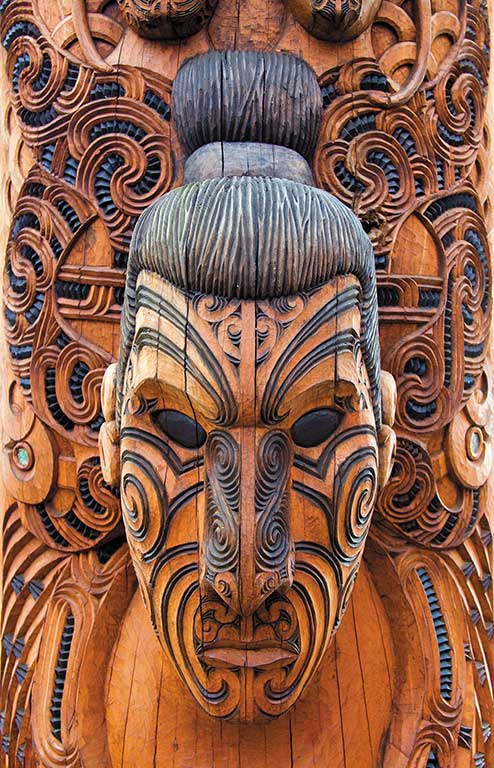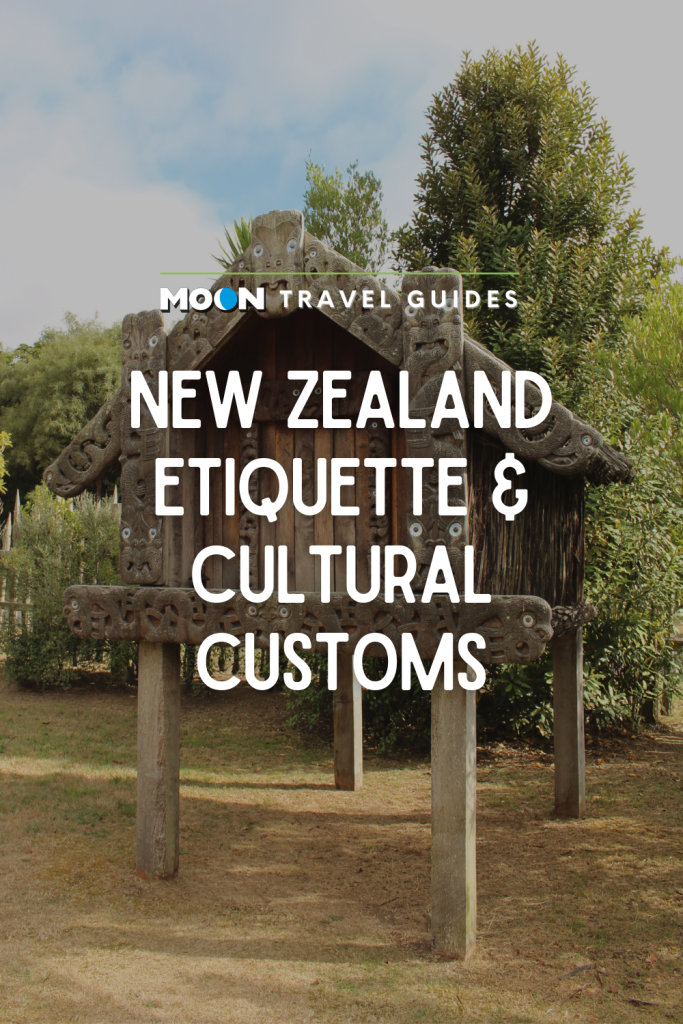New Zealand Etiquette and Cultural Customs
Kiwis are quite proud of their national identity, and they will appreciate you embracing their ways as a newcomer. You won’t be expected to leave all of your old values and customs behind, but you should respect the way things are done in New Zealand, including recognizing the bicultural elements of New Zealand culture involving the Maori.

Kiwi culture is very informal. If you want to fit in, the best thing you can do is relax and try to have some fun. Friendliness and humility are two of the most important virtues to Kiwis, and new residents most often run into trouble when they fail to embrace these values. What you may consider professionalism or politeness, locals will more likely see as an attitude of superiority. A smile is almost always welcome.
The Kiwi Way
In many ways, Kiwis still see themselves as pioneers. It probably comes from being so isolated: This has led them to be very resourceful. They tinker in sheds to fix and build things, they do work on their own homes, they sell sausages in front of shops to raise funds. New Zealanders don’t like asking outsiders for help if they think they can work things out for themselves. You might find them a bit stubborn, especially if you’re used to calling in an expert whenever it seems logical, but it’s a big part of the Kiwi identity.
The other thing you’ll immediately notice about Kiwis is the importance they place on their lives outside of work. Sure, they work hard, but they play just as hard. Whether they spend their weekends tramping up a mountain or playing rugby, they make time for recreation and family.

Dining
Sadly, the British exported a lot of their eating habits to New Zealand. Many diets are based on a constant stream of fish-and-chips and meat pies. Chinese takeaways and curries round out the unhealthy convenience-food regimen that too many Kiwis are following. Other favorites include sausages on white bread and lots of ice cream. Their favorite “fancy” dessert is pavlova, a layer of meringue topped with whipped cream and fruit. This dessert is so much a part of their culture that Kiwis often just call it “pav” to save time.
But things are slowly (very slowly!) starting to change. People are realizing that healthy eating is important and vegetables are not just for decorating your plate. The increased diversity in New Zealand’s population has also helped to broaden the food choices. More Asian foods can now be found in supermarkets, along with Indian and European items. Families are also being encouraged to eat together more often. Just like in North America, busy lifestyles have led to family members grabbing food on the go at different times.
The most dining choices are found in the major cities, where there are also more immigrants. Out in the rural areas, it’s harder to find a wide range of products and restaurants.
If you’re invited to a party at someone’s home in New Zealand, it’s appropriate to bring a bottle of wine, some beer, or food with you. If the host asks you to “bring a plate,” that means the party is a potluck and guests are expected to bring some food and drink to share.
Drinking
Drinking culture in New Zealand can be problematic. Not so long ago, the government tried to force folks to behave themselves by shutting down the pubs at 6pm. This created a culture of binge drinking, where people would throw back as many drinks as possible between work and closing time. The enforced hours are now long gone, but the binge drinking remains. A blasé attitude toward drunk driving compounds this problem, particularly in smaller towns where public transit is not an option. If you think someone has been drinking, do not accept a ride with that person.
Getting drunk isn’t just a male problem, either. Women are almost as likely to overindulge on a night out. You may feel some pressure in social situations to keep up with the hard drinkers. Use your own best judgment in these situations. You may get some ribbing for being a “lightweight,” but chances are your drunk friends won’t remember the evening anyway.
Newsletter Signup
By clicking ‘Sign Up,’ I acknowledge that I have read and agree to Hachette Book Group’s Privacy Policy and Terms of Use
Harden Up and Muck In
Part of the Kiwi spirit involves putting up with discomfort. “Harden up,” they’ll tell anyone who complains about the weather or the hard work they’re doing. If you’re a real Kiwi, it seems, you’ll just put your head down and get on with whatever needs to be done.
This flows into the tradition of “mucking in.” That means helping out whenever help is needed. If there’s been a disaster in a community, or even if there’s a need to fundraise, you are expected to get involved without any benefit to yourself. This shows a dedication to community, that Kiwi virtue of humility, and a good work ethic.
Respecting Maori Culture
Today’s Maori constantly struggle between preserving the past and embracing the future. Traditions and cultural rituals are very important to many Maori, and it is expected that other cultures will recognize the special relationship the Maori have with New Zealand.
Te reo Maori, the Maori language, is the most obvious way in which the culture is being preserved. It became an official language in New Zealand in 1987 and is now taught as part of the school curriculum to some extent. Parents who want their children to speak te reo fluently often send them to extra classes or to a special Maori immersion school.
Genealogy is extremely important to the Maori, and many can trace their ancestry right back to the waka (canoe) which brought their ancestors to New Zealand.

Maoritanga
Maoritanga is literally Maori culture. It includes the legends that are the basis for Maori explanations of how things came to be. A variety of gods and demigods are involved with the Maori oral tradition. Many stories are also captured through wood carvings and woven panels.
Many places in New Zealand have names relating to the Maori myths of their creation. Where the British came in and renamed something, you will often see two official names these days. Both the original Maori name and the British name are given equal billing. Hence you’ll often see things written as: Aotearoa/New Zealand or Aoraki/Mount Cook.
Maori Etiquette
On ceremonial occasions, Maori etiquette is often used by the government. This is most common when foreign dignitaries or heads of state visit New Zealand.
Otherwise, Maori etiquette is generally only observed on a Marae, a Maori courtyard and complex of buildings including a meeting house. There is a strict protocol for entering someone’s Marae, and if you have the occasion to do so, you will be briefed on what to expect.
Maori funerals are also quite different from what you may be used to. There is a three-day tangi, or mourning period, before the burial. This is a time for family and friends to get together on the Marae (or in a home) to share their grief and say goodbye.
From snowy mountains to golden beaches, beauty awaits around every bend on these dramatic islands. Find your adventure with Moon New Zealand.
Newsletter Signup
By clicking ‘Sign Up,’ I acknowledge that I have read and agree to Hachette Book Group’s Privacy Policy and Terms of Use
Pin It for Later


